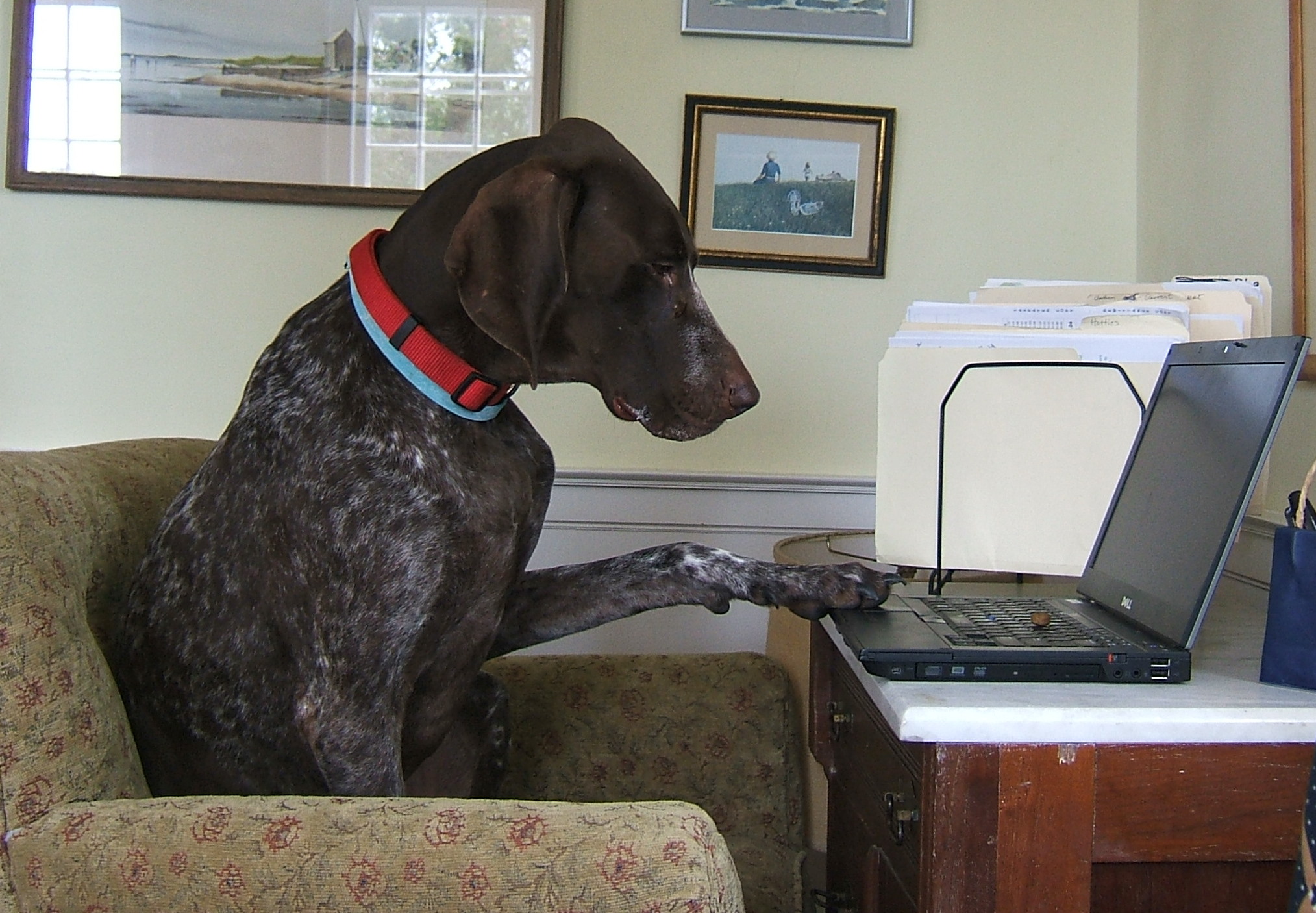
30 Jan From the Desk of Edgar
Working, as I do, with a communication skills training company, I’ve learned the value of good communication. And being a dog, by ‘value’ I mean what’s in it for me. My needs are modest and pretty well known to my correspondents, so it might seem that being skilled at communicating is unnecessary. But if value is your goal, as it is mine, then you might be interested in knowing some of the things I’ve learned about communicating.
In my world, as might be true in yours, a lot of barking goes on. This is a fine, basic tool, and assertiveness is admired, so speak up. But I advise caution. The assertive bark can be annoying, and if this is the only tool you have, you’re likely to get more than your share of unwanted attention.
For this reason, I’ve dug up a few additional tricks to add to your skill set. Chew on these:
Look for clues about what’s going on. You should be able to tell if your people are distracted and busy, or relaxed and receptive. You can make yourself agreeable and accessible by adapting to the prevailing mood. You also look like someone who “gets it.” People like that.
Pick the right moment to ask for things. If your person is moving around, she might not mind opening the back door. If she has disappeared quietly behind a book or computer, you want to be sure your request is really important or you might be in for some serious growling.
Position yourself strategically. You know where the important things are: the leash, the food closet. Hang out there. Often good things happen just because you are in the line of sight when decisions are being made.
Pick your battles. Which is worse: having to wear the itchy red sweater or getting in the tub? You don’t want to be known as the one who resists everything, and you know which battles you have no shot at winning.
Demonstrate the things you’ve learned. It’s polite to give credit to those who mentored you by showing that you remember and use the tricks they taught you. If you know they like to see a sit or a hand-shake – offer them without being reminded. People like to see initiative.
Don’t assume. Just because something was left unresolved – the future of the cheese on the table is a dilemma I frequently face – doesn’t mean that your intervention would be welcome. There is a fine line between taking initiative – cleaning up when the cheese has fallen on the floor, for example – and assuming a result that you want. By all means, be ready to seize the moment but be careful.
Be alert. Pay attention to those people! Everything they do tells you something, and the key is to look for change. Your person may drag about with a noodle-body and a shuffle, so this isn’t interesting. But the moment that spine stiffens, the pace quickens, and the face perks up – something’s going on. Now is the time to make your move.
So- speak! And watch and listen. You may be saying, “ Isn’t this the same old kibble we always hear about communicating?” Well, yes, it is, but like our kibble, it’s good to have.
Woof.
